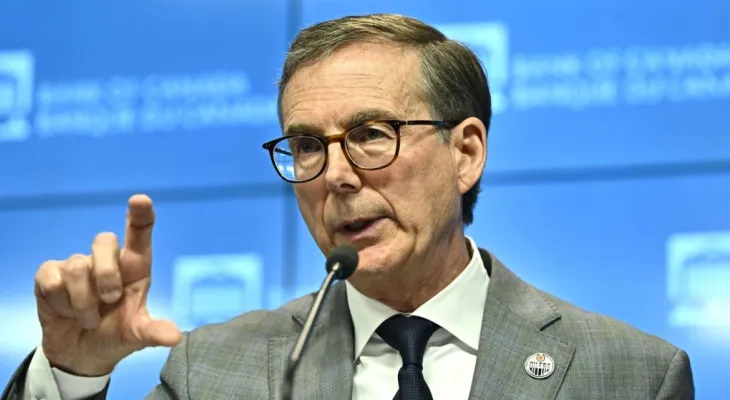Search here
Newspaper
Search here

Arab Canada News
News

Published: June 13, 2024
The Governor of the Bank of Canada, Tiff Macklem, said on Wednesday that public confidence in the Bank of Canada has been shaken due to inflation and needs to be rebuilt.
Macklem said during a panel discussion at the 2024 Montreal Conference, alongside Deutsche Bonds Bank President and Chair of Deutsche Bank Canada, Sonja Folpe, "For many of our citizens, this was their first experience with significant inflation, and it has been painful."
"Inflation hurts people and the economy, and it leads to an erosion of trust in our market-based system."
Macklem stated that the Bank of Canada needs to find ways to explain its policies to a wide range of audiences, including families trying to navigate uncertain times.
He explained, "We need to meet people where they are and ensure they understand what we are doing and why we are doing it."
He said the recent bout of inflation has made people feel cheated and angry because their wages are not stretching as far as they once did."
He said, "Recent history has been a stark reminder that inflation is our common enemy."
Last week, the central bank announced a quarter-point reduction to the key interest rate, the first since the aggressive tightening cycle that began in March 2022 in an attempt to curb inflation.
Since then, both the economy and inflation have cooled, giving the central bank enough confidence to start cutting interest rates.
Macklem stated that it is reasonable to expect more cuts on the horizon, but the central bank is taking it "one meeting at a time."
On Wednesday, the U.S. Federal Reserve kept its own rate steady, as the Canadian economy has weakened more rapidly under the burden of rising prices. Macklem acknowledged the differences between central bank policies but said it is not currently a cause for concern.
He said, "There are limits to this divergence... but we are not close to that limit."
Macklem also stated that businesses and central banks need to be prepared for increasing volatility in supply chains amid climate change, geopolitical tensions, and technological change.
He added, "But the challenges of the future are rarely like the challenges of the past." "Supply shocks are likely to be more important moving forward."
He added that although interest rates are easing in some economies, global interest rates are unlikely to return to pre-pandemic levels.
Macklem noted that rates in the years following the financial crisis have been "extraordinarily low."
"The new normal will not be like the old normal."
Comments